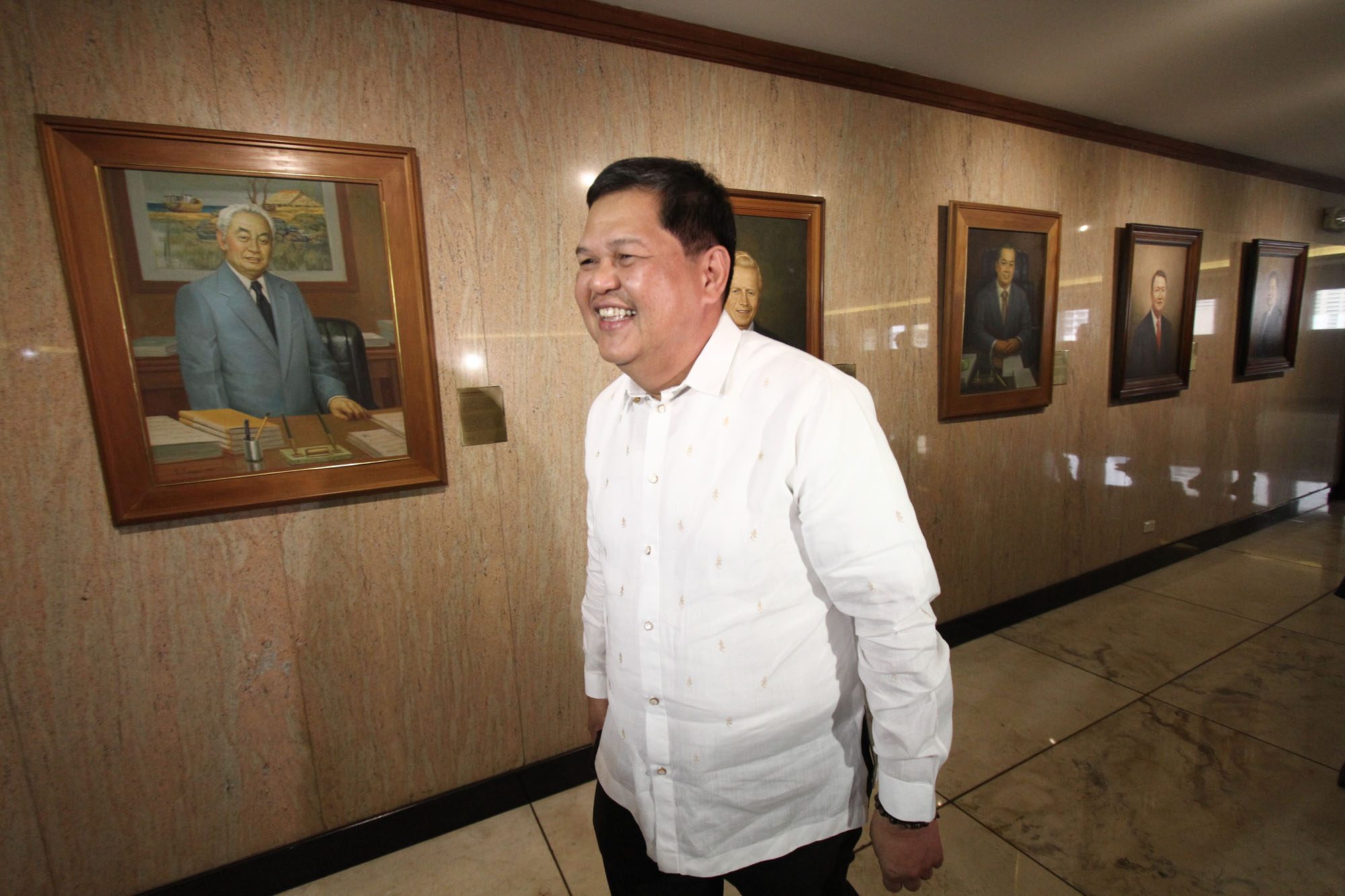SUMMARY
This is AI generated summarization, which may have errors. For context, always refer to the full article.

MANILA, Philippines – Nestor Espenilla Jr’s rise to the top post at the Bangko Sentral ng Pilipinas (BSP) is the product of a lifetime’s worth of work. But as the incoming BSP Governor, Espenilla still has big things planned.
“The focus has been on continuity, and that’s really what this is. But I define it as continuity-plus-plus because there are certain things that I do love, that I care about, and I’d like to pursue more vigorously during my term,” Espenilla said in a Rappler Talk interview.
At the top of the list is Espenilla’s advocacy for financial inclusion, an issue he believes that until properly addressed, limits the BSP’s mandate to serve the public.
“We can talk about strengthening the banking system – and that’s the first order of business – because without a strong banking system, there is nothing to work with anyway,” said Espenilla.
Touted as one of the best central banks in the world, the BSP has employed carrot-and-stick approach on Philippine banks. Hiking minimum capitalization in phases since the Asian financial crisis, and disciplining banks that have not been prudent in handling their depositors’ money, have created a Philippine banking system considered among the most stable in the region.
However, it is a system Espenilla seeks to go beyond as he expressed: “You stand back and reflect on the situation. Here we are: we have a good robust banking system but you ask, ‘Whom does it serve?’”
Following his own question, Espenilla answered, “They should exist to serve the public, our people.”
BSP’s mandate of ensuring sound monetary and financial flows in the country has a direct impact on the national goal of inclusive growth. Data from the Philippine Statistics Authority said that 21.6% Filipinos continue live below the poverty line – a statistic that needs to be reconciled with the rapid growth of the Philippine economy.
National retail payment system

To get a better sense of the lack of financial inclusion seen in the country, Espenilla highlighted the overwhelming number of unbanked and underbanked communities outside Metro Manila and the National Capital Region.
To make his prerogative to make financial inclusion translate to reality, Espenilla recognized that he, along with the BSP, would need to think beyond traditional ways of banking.
In 2007, BSP became the first central bank in the world to have a dedicated unit to promote financial inclusion. This unit, which Espenilla is overseeing as Deputy Governor for Banking Supervision since 2005, led them to out-of-the-box infrastructure and policy framework that leverage on technological innovations.
The aim is to create an enabling regulatory environment that encourages private and public companies in different sectors to come up with products and services that meet the financial needs of Filipinos, especially the unbanked. This advocacy has been a centerpiece in Espenilla’s work in the past decade.
Key to this framework is the National Retail Payment System (NRPS), which seeks to provide a digital solution to several issues that make financial transactions flowing into and within the Philippines expensive and cumbersome.
A 2014 BSP study revealed that out of the more than P20 billion monthly retail transactions done in the Philippines monthly, only about 1% of this is done electronically.
In addition to the prevalence of cash or paper transactions is the lack of access to capital sought by MSMEs (micro, small, and medium enterprises).
Through an ambitious plan to spread access to financial services beyond urban centers and big business by 2020, the NRPS aims to encourage financial and quasi-financial businesses to offer Filipinos a wide array of choices.
With this, Filipinos don’t have to rely on just banks and the existing ubiquitous nationwide network of remittance centers and money changers to send or receive funds. Also in the picture are convenience store outlets, standalone money machines and other brick-and-mortar outlets, as well as other ways to reach even those in the most remote places in the country’s over 7,100 islands.
Thus, mobile phone companies and those who provide innovative financial technology or “fintech” solutions that allow Filipinos to transact through their phones are also key target players.
The aim is safe and seamless transactions between and among banking and non-banking services.
Related consequences of these include heightened competition in the financial industry, increase in access to credit information and data for research and policy purposes, and greater efficiencies for businesses. A financially empowered Filipino is the end-goal.
“The banking system is there and anyone and everyone can use those services in a way that is affordable and efficient for them. If I were to summarize it: nobody gets left behind,” he said.
Balance
Along with this ambitious goal comes a balancing act Espenilla has recognized.
Without close supervision and strict enforcement of polices, the NRPS could weaken the Philippines’ strong and stable banking system if it becomes vulnerable to the flow of illegal funds.
“It’s a constant battle of striking the right balance between several objectives of safety and soundness, of maintaining integrity, of protecting consumers and promoting at the same time, financial inclusion,” said Espenilla.
Not to be carried away by the excitement and possibilities NRPS can unlock, Espenilla remains level-headed, his knowledge of the fundamentals of banking and his experience keeping him grounded.
Espenilla said, “The possibilities, the innovations are being generated in a rapid phase. We are positioning the financial system to be able to engage and all of that. But you’d only be able to do those things if the financial system is fundamentally safe and sound. So, you cannot get away, you cannot be carried away by all the new technology and forget about capitalization and forget about liquidity. You cannot ignore those things so we have to always keep a balance on those things.”
‘Our mandate and constituency is clear’
Nestor Espenilla Jr who joined the Bangko Sentral ng Pilipinas 36 years ago, is scheduled to assume the post of BSP Governor on July 3, 2017. (READ: Philippine bankers cheer Espenilla’s appointment)
“It has sunk in, but it hasn’t quite moved on. It’s ironic; as a professional I have sought this but now that it has been given to me as an opportunity, now I’m struggling to deal with it…not in the professional sense, but in terms of how it could change what I’m used to doing all those years,” Espenilla said.
The decision of President Rodrigo Duterte came at the beginning of a week, which marked a year since the Philippines had elected the former Davao-city mayor president in May 2016. The same week saw a flurry of several other controversial government appointments.
“The environment that we are facing today is, in a sense, not the same environment as, let’s say, what Governor Tetangco and we, as his members faced then,” said Espenilla.
“It’s a new game. It’s a new chapter,” he added.
But despite the new territory, Espenilla is unfazed by whatever challenges lie ahead.
“It’s easy because essentially, I’m here doing a job…Our mandate is clear and our constituency is clear: I serve the public. We in the BSP serve the public,” Espenilla said. – Rappler.com
Add a comment
How does this make you feel?
There are no comments yet. Add your comment to start the conversation.